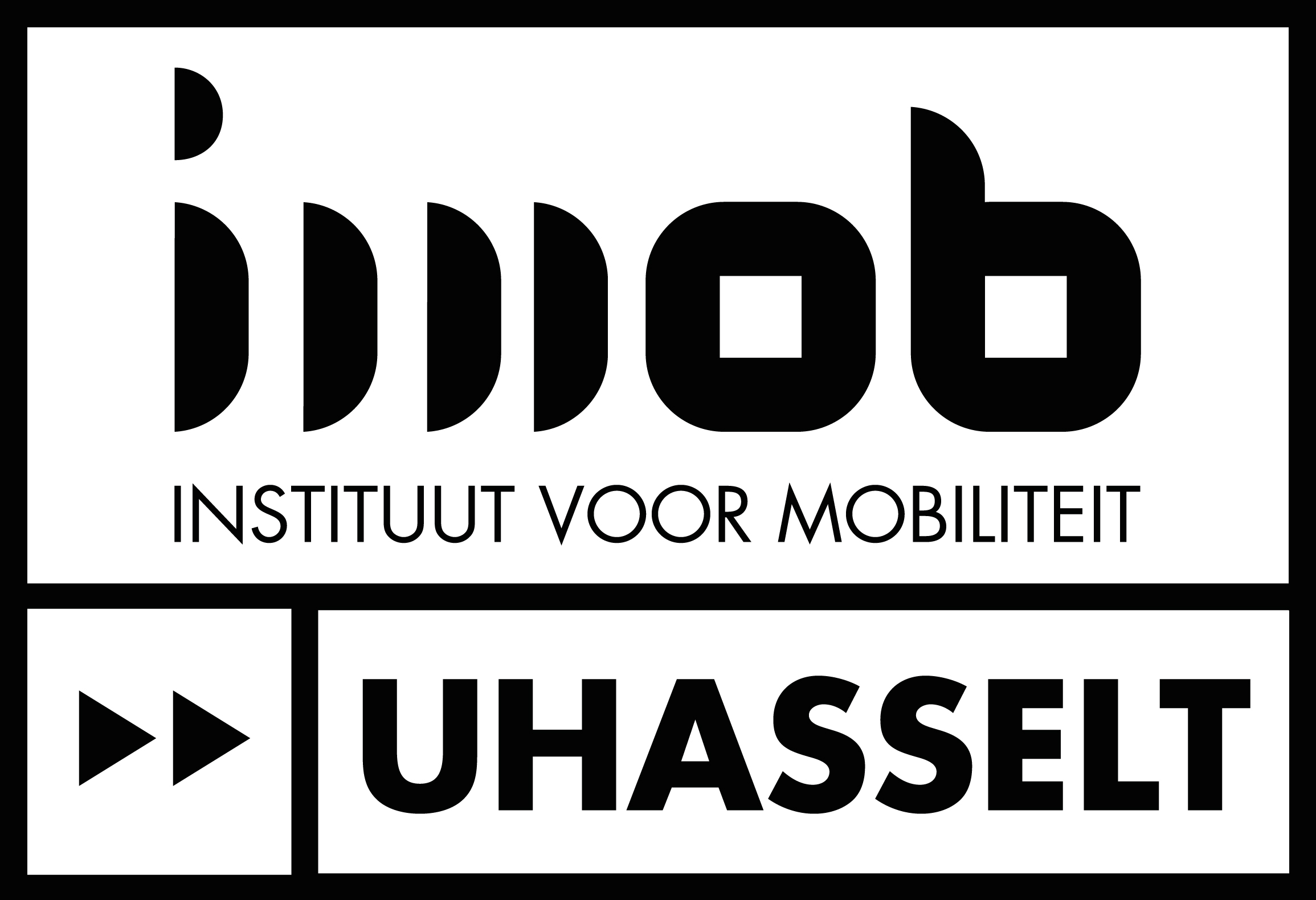STUDENT TRANSPORT FOR SPECIAL NEEDS EDUCATION
From until
Vlaams Ministerie van Onderwijs en Vorming
Vlaams Ministerie van Mobiliteit en Openbare werken
What
In 2015, the Flemish Government presented a new approach in the concept note “Leerlingenvervoer: buitengewoon onderwijs” to better respond to the needs of students in special needs education.
The changes are:
- The local level gains more autonomy to arrange the best possible transport for each student. It is determined locally which students are entitled to transportation to which school for special needs education and in what way.
- The care intensity, transportation needs, and home context of the student in special needs education determine the choice of appropriate transportation.
- In addition to the bus, students can also use carpooling, independent or accompanied cycling, walking pools, bike sharing, taxis, etc.
- (Inclusive) out-of-school childcare is organized for students in special needs education, in the vicinity of a school for special education or in the vicinity of the students’ place of residence.
Students in special needs education who already had the right to transportation before the pilot project retain their right to transportation. However, the participating schools also want to reach and encourage them to use other modes of transportation than collective transportation.
Goal
The purpose of the project 'Evaluation pilot project for special needs education student transport' was twofold.
On the one hand, determine how the concept note 'Pupil transport: special needs education' of the Flemish Ministers of Education (Hilde Crevits) and Mobility (Ben Weyts) is put into practice and experienced in the two pilot regions. This was done using a mixed methods study in both pilot regions. T
he second part of the project examined whether an organic implementation of the concept note 'Pupil transport: special needs education' in Flanders is feasible and desirable. This resulted in the formulation of policy recommendations regarding the new concept of 'Student transport: special needs education'.
Relevance
The current system of zonal student transport is complex. The organization is central: the Agency for Educational Services (AGODI) grants the right to student transport, De Lijn is responsible for the practical organization of the journeys. Zonal student transport is therefore a shared responsibility of both the Flemish Ministry of Education and Training and the Flemish Ministry of Mobility and Public Works.
Special needs education students often spend a very long time on the bus to and from school. Some students sometimes spend 2 hours to 3:30 a day on the bus. In addition, there is hardly any out-of-school childcare for students in special needs education.
Our role
After drawing up the evaluation questions in consultation with the Institute for Mobility (University Hasselt), we qualitatively evaluated the pilot project for special needs education student transport. This was done on the basis of four semi-structured interviews with two involved regional coordinators and eight focus group interviews with various actors involved.
The actors involved from both pilot regions were: students (per region), parents (per region), collective transport and after-school care supervisors (per region), school staff members (interregional) and management, school boards and CLBs (interregional). The qualitative data was analyzed with the Nvivo software package and then integrated with the quantitative data collected and processed by the Institute for Mobility of Hasselt University. Based on all these results, a research report was developed in collaboration with the Institute for Mobility (UHasselt) and policy recommendations were formulated.
Future
In collaboration with the Institute for Mobility (UHasselt), the following policy recommendations were formulated based on the various analyses and the research report:
- Continue the current pilot project and strengthen the initiatives.
- Inform and sensitize parents more about the new operation of student transportation with a focus on the student.
- Communicate well to the professional actors so that they all convey the same message about the new concept note.
- Optimize collective bus transportation by improving cooperation between the various actors or reducing the number of actors.
- Digitize communication between the various actors of collective bus transportation.
- More and clear monitoring of student transportation in special education, both for collective bus transportation (e.g., track & trace systems) and other transportation modes such as public transportation, walking/cycling pools, transportation by parents with car/bicycle/on foot, etc.
- Develop generic criteria for determining the right to student transportation that can be adapted to the local characteristics of the transportation region.
- When decentralizing the determination of the right to transportation, sufficient monitoring must be provided, and the final decision is ideally taken away from the schools.
- The right to student transportation must be determined individually, student by student, taking into account both student characteristics and context characteristics.
- Transportation alternatives must be optimized.
- Transportation alternatives must be financially and administratively supported for parents.
- Students must be supported in learning to use alternative transportation modes.
- Optimize external factors such as accessibility of the school by public transportation, safety in the vicinity of schools and stations, and increasing awareness in society of support for students with special needs.
Researchers
Tessa Delien
Researcher and occupational therapist dedicated to promoting the inclusion and participation of individuals with disabilities. Everyone has the right to fully participate in our society.
Karolien Baldewijns
Committed researcher who enjoys exploring new paths and has a passion for empowerment.


